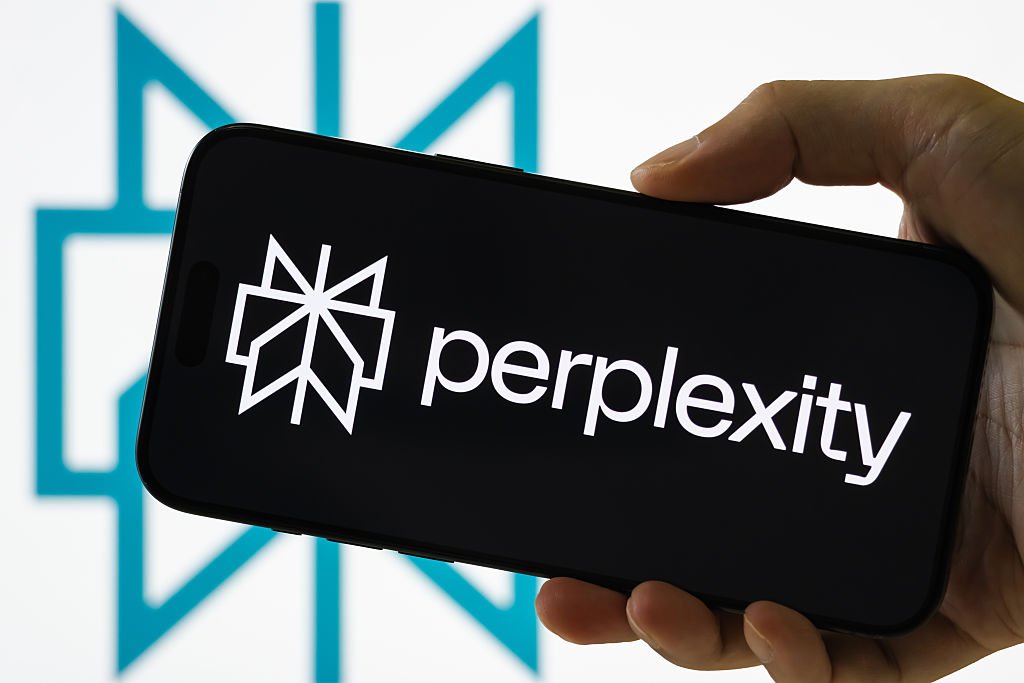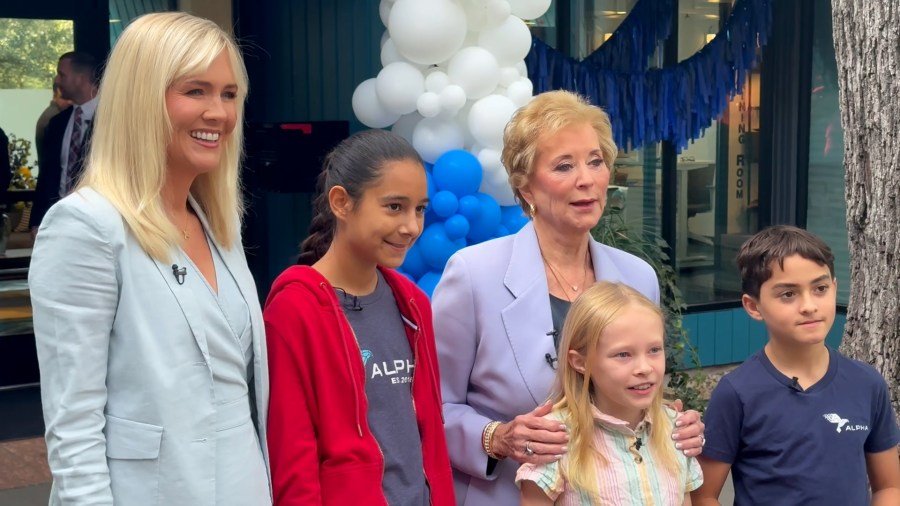AI Research
Perplexity AI makes its play for government use

Another artificial intelligence company is staking its claim in the government marketplace.
Perplexity AI, an AI-powered search engine, is currently piloting its tools in various federal agencies. Thousands of government workers are accessing Perplexity’s public platforms with a .gov or .mil email domain, too, and the company is already in “active discussions” with the General Services Administration on how to formalize its product offerings in the federal market.
And, later Monday, the AI company will become the latest to offer a government-focused product suite.
“Perplexity for Government” is designed to provide enhanced security features for federal workers who access Perplexity from whitelisted government locations, the company told FedScoop.
“A universal truth about these public platforms is one, feds are using them,” said Jerry Ma, Perplexity’s vice president of policy and global affairs. “Two, feds are getting value out of them, but not nearly as much as they could if they were using the frontier technologies.”
The federal workforce is increasingly turning to generative AI to perform tasks and streamline workflows, as the Trump administration encourages its use in the workplace. Ma’s comments highlight how federal workers may not be waiting for formally procured platforms, even as some of the largest technology companies compete to do business with the government.
Perplexity’s platform utilizes large language models from other companies — such as OpenAI’s ChatGPT or Anthropic’s Claude — to perform real-time internet searches and present summaries to users.
Under the Perplexity for Government launch, federal workers who are logged into a government network or using a federal email domain will have access to “enterprise-level security” and the top Perplexity models, which are not otherwise available on public platforms, according to Ma.
The additional security aims to protect federal and sensitive information, and Ma said Perplexity intends for the protections to extend to all government users, including those in the military and related domains. Users do not need a Perplexity account if they are on a government network.
Beginning Monday, Perplexity will automatically identify federal networks.
“Most agencies have subnets that are either a public record or in one of these widely used sort of commercial databases out there. And we use network telemetry based on those public records and other information in order to be able to detect the requests that need to be placed under these benefits and enhanced protections,” said Ma, who most recently served as the chief information officer for the U.S.Patent and Trademark Office.
Should the auto-identification process miss certain networks, Ma noted agency chief information officers, chief information security officers or other authorized officials can also submit any network ranges they would like explicit coverage for.
“For whatever holes are remaining, we are giving agency CIOs the option without signing an agreement, without signing a contract or paying us a dime. Tell us what network ranges you’re worried about and we will make sure those are absolutely, positively covered as well,” Ma said.
Perplexity states it is the only AI company without “opt-in” security, meaning their security settings are by default for government workers, as opposed to other companies that offer security through specific products.
Separately, Perplexity is also announcing a government-tailored version of its Perplexity Enterprise Pro, which will cost agencies $0.25, according to a company fact sheet shared with FedScoop. Agencies can have a 15-month runway with the product, which can begin at any time within the current administration.
Ma told FedScoop that Perplexity is “accelerating” discussions with federal officials to potentially get the product on the General Services Administration’s Multiple Award Schedule. He said he hopes agencies will reach out to Perplexity to determine the “fastest path forward.”
“But agencies can also look forward to these offerings being officially made available under the usual governmentwide acquisition channels in due course, and we’re working very hard and we’ve had a lot of very fruitful discussions with GSA officials to make that happen,” Ma said.
The product will be compliant once FedRAMP approval is received, according to Ma.
The GSA has announced a series of “OneGov” deals with other AI companies that are offering their products to the government for a steep discount. OpenAI, Anthropic and Google are selling their AI models to government agencies for $1 or less for one year, while Box and Microsoft struck similar discount deals.
Perplexity’s interest in working with the government comes as the company considers buying the social media platform TikTok, which is currently owned by China-based ByteDance.
When asked how a bid to buy TikTok could interact with Perplexity’s public sector work, Ma said “the short answer is we’re committed to serving feds no matter what happens on a [mergers and acquisitions] front.”
AI Research
Switzerland launches open-source AI model Apertus developed by top research institutes

Switzerland has unveiled Apertus, an open-source large language model created through collaboration between the Swiss Federal Institute of Technology in Lausanne (EPFL), the Swiss Federal Institute of Technology in Zurich (ETH Zurich), and the Swiss…
AI Research
McMahon, Morath visit Austin school using artificial intelligence

AUSTIN (Nexstar) — U.S. Secretary of Education Linda McMahon toured an Austin private school on Tuesday, which claims it helps students “Learn 2x in 2 Hours.”
Alpha School Austin
Alpha School Austin is part of an upstart network of Alpha Schools across the country, focused on using Artificial Intelligence (AI) to help students progress through their coursework faster.
“Fundamentally, we believe that kids are limitless,” co-founder MacKenzie Price said. “When kids receive personalized learning that goes at their pace and level, their learning is able to go exponentially faster than in a traditional classroom.”
Instead of ‘teachers,’ students at Alpha School Austin are supervised by ‘guides,’ who help lead them through their abbreviated coursework. During the course of McMahon’s tour, students were completing rapid-fire math problems, designing a mini gold course and cooking.
“[Teaching two hours a day] begs the question, ‘what do you do with the rest of the school day?’” Price said. “We want our students to learn life skills, the skills that are going to help them be successful when they’re out in the real world.”
Despite having one-third of the classroom instruction, Alpha said their students are showing high levels of student achievement.
“We provide NWEA MAP (Northwest Evaluation Association Measures of Academic Progress) testing assessments three times a year in order to measure our students’ progress,” Price said. “Our classes are ranged in the top 1% in all subjects, all grade levels, with the exception of fifth grade math—which was 93rd percentile.”
The AI part of learning only accounts for about 10% of a student’s success, Price admits. It also isn’t for everyone, with Price saying it works for about 80-90% of students.
“Sometimes we see families who prefer a classical education model, or we see students who maybe want a more traditional experience,” Price said. “But it’s very rare.”
Head of U.S. Education and Head of Texas Education visit
After the tour, McMahon and Texas Education Agency Commissioner Mike Morath attended a roundtable featuring Price and several other Alpha school stakeholders. They heard from current parents, students, ‘guides’ and an alumna.
“I was very impressed,” McMahon said after the visit. “It’s just incredibly inspirational to see how quickly they can learn.”
McMahon and Morath are the heads of public education at the federal and state level, respectively. However, they hope to draw inspiration from the $40,000-a-year private school.
“What I’m doing right now is going around the country to see best practices,” McMahon said. “What I would like to do is to develop tool kits to leave behind with schools or with states and say ‘these are some best practices I think that I’ve come in contact with around the country. Not that I would write them—but there would be people knowledgeable to write them so they could be utilized and say ‘this is not a mandate. You don’t have to do this. This is where it’s worked.”
“If you look at the Texas Constitution, it calls for a general diffusion of knowledge,” Morath said. “Our goal is to make sure that children have access to great schools regardless of how who runs it, regardless of the label on the outside of the building. And so there are lessons to be learned in a school like Alpha that we’re visiting today. There are lessons to be learned from traditional public schools. If you look across the spectrum of the 9,000 public schools that run in Texas, you see tremendous diversity of educational models, of curricular design, of the way that teachers are supported and provide support to students we have to learn these lessons. How else do we improve the quality of education for our young people?”
Of course, not everyone can afford a school as expensive as Alpha. Even with the full amount provided for families through Texas’s incoming Education Savings Accounts would only cover 1/4th of the annual tuition cost. However, Alpha School officials argue the model can be implemented in other schools at a low cost.
“I could do this model of education in a tent as long as I had internet,” Price said. “It’s not about the building. It’s about what happens inside the building. That’s the thing that matters. I think it’s time for us all to hold ourselves accountable for delivering better to these kids and I think using artificial intelligence is what enables us to raise human intelligence.”
Copyright 2025 Nexstar Media, Inc. All rights reserved. This material may not be published, broadcast, rewritten, or redistributed.
For the latest news, weather, sports, and streaming video, head to KXAN Austin.
AI Research
Oxford and EIT Secure £118 Million for AI-Driven Vaccine Development Research – geneonline.com
-

 Business2 weeks ago
Business2 weeks agoThe Guardian view on Trump and the Fed: independence is no substitute for accountability | Editorial
-
Tools & Platforms4 weeks ago
Building Trust in Military AI Starts with Opening the Black Box – War on the Rocks
-

 Ethics & Policy1 month ago
Ethics & Policy1 month agoSDAIA Supports Saudi Arabia’s Leadership in Shaping Global AI Ethics, Policy, and Research – وكالة الأنباء السعودية
-

 Events & Conferences4 months ago
Events & Conferences4 months agoJourney to 1000 models: Scaling Instagram’s recommendation system
-

 Jobs & Careers2 months ago
Jobs & Careers2 months agoMumbai-based Perplexity Alternative Has 60k+ Users Without Funding
-

 Podcasts & Talks2 months ago
Podcasts & Talks2 months agoHappy 4th of July! 🎆 Made with Veo 3 in Gemini
-

 Education2 months ago
Education2 months agoMacron says UK and France have duty to tackle illegal migration ‘with humanity, solidarity and firmness’ – UK politics live | Politics
-

 Education2 months ago
Education2 months agoVEX Robotics launches AI-powered classroom robotics system
-

 Funding & Business2 months ago
Funding & Business2 months agoKayak and Expedia race to build AI travel agents that turn social posts into itineraries
-

 Podcasts & Talks2 months ago
Podcasts & Talks2 months agoOpenAI 🤝 @teamganassi



















